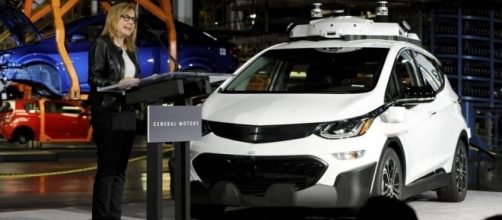With electric vehicles now becoming quite normal on the streets of major cities, automotive manufacturers are now looking into slowly implementing autonomous driving systems into their products. As of the moment, companies such as Tesla is leading the charge, but other manufacturers are slowing gaining ground. General Motors is one company that is taking autonomous driving very seriously as indicated in their recent launch of 130 units of Chevrolet Bolt EVs that will be test driven on public roads.
A big investment
According to reports, General Motors has apparently forked out over a $1 billion to a Silicon Valley startup company called Cruise Automation.
The company was instructed to internally develop a brand new automated driving system that will be used for the company's different products. Back in March of last year, the company produced over 50 driverless vehicles using the 2017 Chevrolet Bolt electric vehicle as its base.
The cars were used to test out the different systems in real life situations. A legislation was recently passed that allowed for the company to initiate its test on public roads. The vehicles were let loose in the different locations including the San Francisco Bay Area, Arizona, and Scottsdale.
Mass production
After the success of the initial tests, Cruise Automation has now announced the release of an additional 130 vehicles based on the second generation Chevy Bolt EV.
The brand new batch of vehicles is reportedly far more advanced that the initial 50 cars that were released. The new models are revealed to have an updated array of sensors, which includes new Lidar systems, cameras, radar, and other sensors.
Official launch
At the Bolt's assembly plant in Orion Township, Michigan, General Motors CEO Mary Barra officiated the launch of the brand new vehicles. The new batch was revealed to be the company's next step in expanding their "real-world tests," which is aimed at producing future products that will meet the strictest standards for safety and quality. Other manufacturers are also taking steps to develop their own autonomous driving products, but General Motors is apparently taking it more seriously than others as it plans to be one of the leading manufacturers of truly self-driving vehicles.
Telsa currently has their own "Autopilot" system, which is basically a suite of electronic active safety systems. However, the entire setup doesn't really translate to a true self-driving product. Industry experts believe that a level 5 self-driving product may become normal sometime around 2030.


